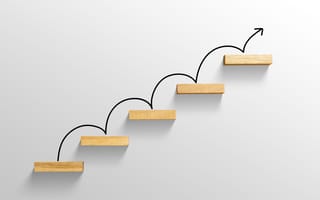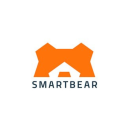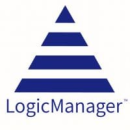Before Llewelyn Venter was a senior customer success manager at LogicManager, he was a competitive cyclist in South Africa, breaking down the challenges of his races into manageable components. Today, as a tech professional in Boston, Venter still brings what he calls “the athlete mindset” with him to work.
“Celebrating each incremental achievement, much like milestones during a race, fosters motivation and commitment,” he told Built In Boston. “This approach sets the stage for customer success.”
Venter’s positive and proactive approach to building relationships with customers simplifies navigating the complex needs that each account brings to the table. By applying the same process to each client, Venter is able to help his customers reach their goals while driving success for LogicManager’s team as well.
But Venter’s method isn’t the only path to success — an array of possibilities exist for CSMs seeking to become consultative partners for clients and support growth and opportunity for all stakeholders along the way.
Built In Boston heard from Venter and other talented CSMs at Funnel, Workhuman, Agero and SmartBear about how each brings their individual abilities to master their roles and support their clients along the way.

Funnel provides a hub for marketing data that helps businesses understand what’s driving value.
What steps do you take to better understand the needs, goals and expectations of your customers?
Preparation is key! I find internal handoff calls really helpful in understanding a customer’s needs from the get-go. Having this context is also valuable for executive business reviews because it allows me to dig deeper into their long- and short-term goals. I make sure that every business review includes time to discuss previously established goals, progress towards those goals, any new business needs and an action plan. This creates alignment between the stakeholders and myself and ensures we have a clear path forward.
What training is in place to help CSMs in your organization become experts on your products and industry?
We’re lucky that Funnel leadership encourages us to take the time we need to expand our knowledge of both the platform and industry. Departments across the organization such as support, product, development and marketing help facilitate this by creating and adding training sessions to Funnel’s “learning calendar,” sharing new or important findings via Slack and welcoming CSMs to shadow them. We also have product courses, recorded trainings and other internal resources that all CSMs are required to complete — not only during onboarding, but continuously throughout our time at Funnel.
These supports allow CSMs to deeply understand their customers’ use cases, how we can better support those use cases and what additional value we can offer. Improving our knowledge allows us to simultaneously focus on both the big-picture strategy and day-to-day technical solutions for our customers.
Improving our knowledge allows us to simultaneously focus on both the big-picture strategy and day-to-day technical solutions.”
What soft skills have you found to be particularly important when it comes to consulting your clients?
Communication may be the most important skill for CSMs to have because we need to be able to listen well, ask the right questions and pay attention to what the customer has left unspoken. I’ve been able to build upon this skill throughout various roles over the years. Setting aside time to listen to my own calls, making note of how I can improve and getting peer and manager feedback have all been helpful in honing my communication skills.
Another big one is time management. As customer-facing employees, CSMs are often on calls throughout the day. However, there’s also a ton of preparation, follow-up and internal coordination that goes into this role. To successfully consult my clients, I know that I need to have a good balance between time on calls and my time following up with the appropriate internal teams. It’s impossible to make progress towards a customer’s goal without doing the behind-the-scenes work and advocating for them internally. This sometimes means knowing when to say no, whether that’s setting a limit on the number of calls per week or turning down additional responsibilities.
With a mission of making work more human, Workhuman offers: the Workhuman Cloud, a social recognition and continuous performance management SaaS platform; Workhuman iQ, insights for HR solutions; and Workhuman Certified, a recognition program honoring and convening thought leadership communities.
What steps do you take to better understand the needs, goals and expectations of your customers?
In my experience, I find that two keys to understanding the needs, goals and expectations of my customers are: know my audience and actively listen.
I take the time to research my customers to find out what’s important to them. A few ways I do this are by following their company on LinkedIn, looking at their social media and reviewing their company website for insight into their values and mission. Knowing what drives them before I have a conversation helps me ask the right questions and guides my recommendations. In turn, they know that I care and it’s a great way to start a relationship.
I use open-ended questions such as, “What is one thing working well and one thing that can be improved in your program?” This encourages customers to express their thoughts in their own words and helps them clarify their ideas so that we can develop more precise solutions that fit their needs.
What training is in place to help CSMs in your organization become experts on your products and industry?
At Workhuman, we have a great enablement team that provides a comprehensive onboarding program where we learn about all areas of the business and how they work together to bring our product to life for our customers. There is internal documentation and resources on all of our processes and products, including tool kits, white papers, best practices, communication templates and guides. We also have dedicated monthly enablement training meetings where we deep dive into relevant topics and leverage breakout groups for further collaboration and role play.
One of the best resources we have is each other. Everyone is willing to help answer questions and dedicate time internally for knowledge sharing. All of these tools arm us with industry and product knowledge that ultimately empower us to become trusted advisors for our customers.
One of the best resources we have is each other.”
What soft skills have you found to be particularly important when it comes to consulting your clients?
I’ve found over the years that empathy and honesty are very important attributes to bring to the customer relationship because that is where trust begins. It is about showing up on time, being responsive and following through with what you’ve said you will do. If you don’t have the trust of your clients, it is much harder to consult, and they will likely second guess you.
Listening is another incredibly important skill. Asking your clients regularly for feedback can be intimidating, but it will only strengthen your relationship and provide opportunities to show them you value their perspective. I’m naturally a person who wants to find a solution and fix the problem, so I’m constantly reminding myself to pause and think before responding.
Agero provides driver assistance, accident management, consumer affairs support and connective vehicle services for clients in the auto industry.
What steps do you take to better understand the needs, goals and expectations of your customers?
Building relationships and rapport is first and foremost. My team and I research as much as we can about our clients’ background, how they landed in their role and what their prior experiences working with our company have been like. We learn about them as people, meet with them in person as much as possible and strive to be open, honest and personable.
Listening with intent is also crucial. We take copious notes, have follow-up questions, probe for more information, work on understanding what a client needs by what they are and aren’t telling us and give examples of past work that can help them address their challenges.
When we have meetings or presentations, we spend the time to thoughtfully prepare. We work on ways of ensuring the conversation is two-sided and open, that there is a solid agenda and goals for each of the parties present. When tough news needs to be delivered, I try to tackle those discussions in person and avoid surprises where I can. Regular touchpoints and transparency help in making sure clients don’t feel blindsided.
What training is in place to help CSMs in your organization become experts on your products and industry?
Agero strongly encourages the client success and sales organization to be curious and to learn as much as we can, seeing what works and what doesn’t and sharing with the rest of the team. We tap marketing, client enablement, product, operations and numerous other teams across the organization to product train. We engage with one another on platforms like Slack to share knowledge and ask for help or insight, and we do role playing exercises before meetings or presentations to prepare.
We have a relationship with Sandler that we leverage for sales training. It has been immensely helpful in providing our team with skills on meeting structure, approach to documentation and meeting notes, contract development and more.
What soft skills have you found to be particularly important when it comes to consulting your clients?
Client success positions can be difficult to fill — the role requires the right set of skills and capabilities. When it comes to consulting clients, communication, poise and confidence are key, as is the ability to take data and interpret it to tell compelling and persuasive stories. Consultation also requires a delicate balance of calm and urgency — helping clients navigate through a difficult situation with a calm head but being able to swiftly act on time-sensitive issues by getting the processes in place and people involved to create a solution.
When it comes to consulting clients, communication, poise and confidence are key.”
Being humble, self-aware and able to accept constructive criticism is also important. Successful client success professionals learn from their mistakes, analyze how and why meetings or campaigns went well or didn’t go well and then take those learnings and apply them for the future.
At Agero, we’re also empowered and encouraged to take a holistic approach to consulting our clients, reviewing financials, understanding how our programs are impacting the client’s business and Agero’s to get the best results.
SmartBear provides tools that give software development teams visibility into end-to-end quality through test management and automation, API development and application stability.
What steps do you take to better understand the needs, goals and expectations of your customers?
There are steps I take before I meet with a customer as well as during customer meetings. Before I meet with them, I talk to sales and look through notes to understand why they bought, what expectations sales has set and what the customer is looking to accomplish. When talking to a customer, my main goal is to start a dialogue unearthing their current pain and conveying the steps to alleviate that pain through the implementation of our product. I confirm our mutual goals by asking them directly, “I heard you are doing this process today. Is your goal to do X with this tool?” Previous research makes this personal, and when the customer can see I am invested in their success, the reason for our conversation comes forward.
This transitions from the current pain to the future ideal-world scenario. “In an ideal world, how would this work for you and your team? Who do we want to involve more in that world? Involve less?” Once this ideal world is understood, I can effectively manage expectations around what our product can and cannot do, setting both my customer and myself up for clear communication and success.
What training is in place to help CSMs in your organization become experts on your products and industry?
As a CSM team, we participate in technical and product training to learn how to use our product to solve real-world customer problems and bring about customer delight. Led by technical teams like solutions engineering, product and engineering, these trainings give us a tactical blueprint of what it takes to engineer the product to accomplish customer goals. We then use that blueprint in our customer interactions and iterate on them continuously. These blueprints eventually become internal guides or public content to be shared with customers and internal stakeholders creating more available training for all.
Beyond these technical trainings, we also do sales enablement and marketing training to work on messaging and understand the bigger picture of the industry and its participants. This includes understanding what the priorities are of the customer personas we work with and how to position our features and their value to get stronger customer buy-in. The impact of these training sessions is that a CSM in our organization becomes not just another software vendor, but a trusted advisor to our customers on our product, industry trends and business goals.
What soft skills have you found to be particularly important when it comes to consulting your clients?
As a CSM, I focus on being a clear communicator, a good listener, proactively curious, collaborative and organized. Listening is vital to understanding what a customer needs, and curiosity allows me to dig deep with customers to map the problem my product solves to their organizational goals. I regularly communicate complex concepts to customers and serve as the voice of the customer internally, so communication skills are a must.
I focus on being a clear communicator, a good listener, proactively curious, collaborative and organized.”
When working with enterprise customers, they have many completely separate teams and entities looking to solve entirely different problems with your product. I maintain a large contact network across various companies, teams and decision makers inside of my accounts. This requires a significant level of organization to ensure that I can provide the right value to the right audience.
Strengthening these skills requires collaboration with many teams and ensures I am always upleveling the value I bring to customers, since they are at the core of everything we do. For me personally, this is achieved through owning my customer’s success, internal collaboration, preparation, practice and actively seeking out new ways to drive results for customers.
LogicManager is an enterprise risk management SaaS company, helping organizations manage surprises before they happen.
What steps do you take to better understand the needs, goals and expectations of your customers?
At LogicManager, we emphasize the importance of asking clarifying questions due to the rapid changes in our landscape. It’s crucial not to assume that what was true yesterday still holds today. I maintain a continuous learning mindset and strive to align operational tasks with our strategic company goals. Uncovering the “why?” behind our actions is paramount — understanding the broader context and any board mandates. Research plays a pivotal role, whether it’s proactive exploration like merger and acquisition activities or quick on-the-fly investigations during customer conversations.
It’s crucial not to assume that what was true yesterday still holds today.”
Following consistent processes in customer interactions is a core practice, ensuring that success becomes a natural outcome over time. I pride myself on persistence and resourcefulness, always seeking solutions and leveraging the expertise of my incredible teammates when needed.
What training is in place to help CSMs in your organization become experts on your products and industry?
Training is ongoing at LogicManager, as it is crucial for staying current amidst constant changes. LogicManager prioritizes a growth mindset and continuous learning. Our regular product sessions keep us updated on enhancements, while industry updates are shared to align with our customers. Adept product and industry knowledge is pivotal in fostering strong customer relationships. We adhere to “equal business stature,” engendering trust and empowerment as advisors.
Personally, I find empowerment in providing advice and guidance to customers, making me feel like a true team member. Additionally, a substantial part of my learning comes from our customers themselves. As a SaaS enterprise risk manager provider, we understand product and industry standards and regulations, but our customers educate us on their application in their organizations, which is immensely valuable. This enables us to identify common trends within the same industry by attentively listening and diligently taking notes — I’m an avid notetaker.
What soft skills have you found to be particularly important when it comes to consulting your clients?
I’ve mentioned listening, clarifying and strategic thinking, but embracing tough conversations like escalations or resetting expectations can improve over time. Building trust with customers for win-win solutions is essential. Prioritizing and summarizing the next steps after meetings prevents unnecessary stress.
Critical thinking and analyzing problems have also been valuable. While not an expert, I believe in honing skills over time for progress. Reflecting on handling situations better than before is rewarding. Strengthening skills involves practice, refinement, testing and continuous improvement — a work in progress aiming for 1 percent better daily.














